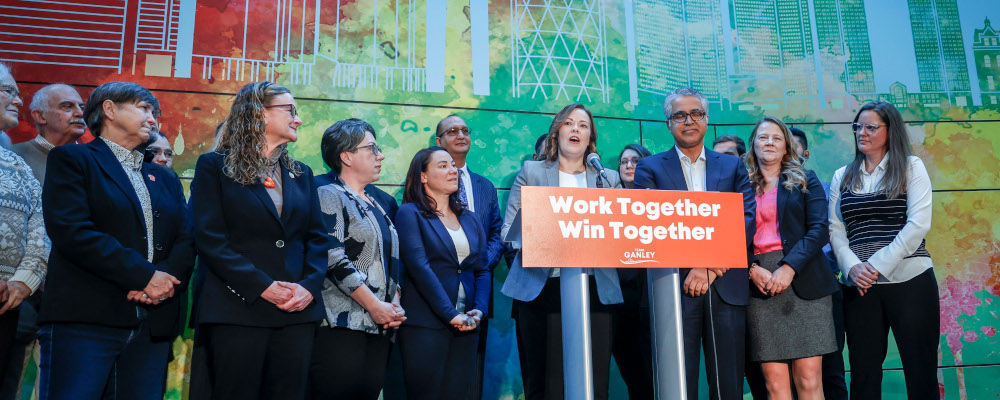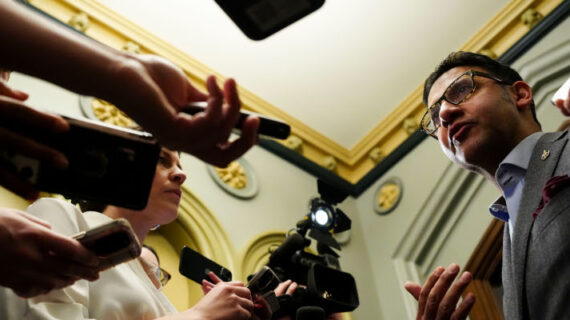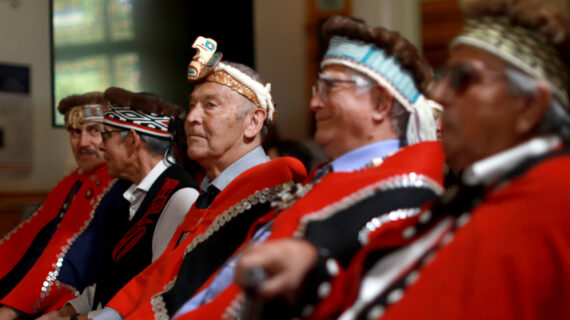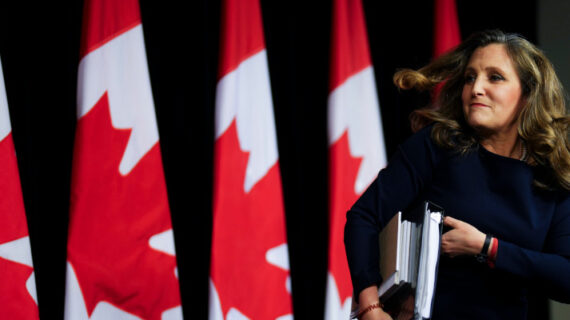The kick-off of the Alberta NDP leadership race earlier this month has made one thing clear: 2017’s uniting of Alberta’s conservative parties has produced not only an electoral juggernaut, but it has dragged Alberta’s NDP into a full policy and party repositioning—a move that threatens to make it almost unrecognizable to the party Rachel Notley took over in 2014.
Ever since Jason Kenney won the leadership of the United Conservative Party in 2017, the Alberta NDP has been on its heels defending its one-term record in government. And just as consequentially, it has had to defend its ties to the federal NDP and its unpopular-in-the-Prairies leader, Jagmeet Singh.
In her near decade as party leader, Notley resisted giving an inch on her policy record, attempting to delicately carve out differences in policy with her federal cousins. At the same time, she was keenly committed to her own set of progressive policy priorities—including a series of tax increases on businesses and individuals.

Party operatives faithfully stayed on script and cast off accusations that they were taking their marching orders from Singh, arguing such claims were insider nonsense removed from the day-to-day concerns of Albertan voters. But with Alberta voters telling the NDP to stay put in opposition until at least 2027, it’s clear that its affiliation with Singh and the federal party isn’t its only problem. The Alberta NDP’s own record is a challenge that it must overcome if it’s ultimately going to win back government.
The proof is baked into how the leadership contestants have all kicked off their campaigns.
Former Deputy Premier Sarah Hoffman called the consumer carbon price—one she herself helped to advance and defend in Notley’s government—“dead.” Up-and-comer Rakhi Pancholi echoed the same sentiment in her campaign launch and subsequent interviews.
Calgary-based MLA Kathleen Ganley, channeling her very best impression of Danielle Smith during the premier’s time at the Fraser Institute, has called for raising the personal tax exemption by another $5,000 to $26,000, a move that would mean 2.5 million Albertans would pocket tax savings of $400 a year and remove 150,000 Albertans on the lower end of the tax bracket from paying any income tax at all.
Those who closely watched the 2023 provincial election will recall this campaign pledge from Ganley is not too far removed in spirit from the UCP commitment to create a new 8 percent tax bracket on income earned under $60,000.
Campaigning on tax increases was once considered electoral poison in the province—that is, until the NDP victory in 2015. It was that assumption underlying the unearned confidence of Alberta’s former Progressive Conservatives in 2015 who simply couldn’t imagine voters giving Alberta’s balance sheet to a party campaigning on income tax hikes.
But with NDP MLAs now nursing their wounds from two consecutive election defeats thanks to an invigorated united conservative movement in Alberta, raising taxes is once again a four-letter word in Wild Rose Country.
Members of the Alberta NDP similarly haven’t been afraid to raise the temperature against their federal party. Leadership contestants have even expressed an interest in opening the debate about formally dislodging the party’s connection from the federal NDP, a former sacred cow within the party.
Alberta NDP energy critic Nagwan Al-Gunei released a statement this month alongside her NDP counterpart in Saskatchewan taking a shot at federal NDP MP Charlie Angus’s bill that threatens imprisonment for anyone who advertises the positive contributions of Canada’s oil and natural gas sector—a policy move from Angus that no doubt has significant support among the environmental activist wing of the party but is clearly a non-starter for any serious Albertan politician.
And unless former Calgary Mayor Naheed Nenshi, whose entry into the race has been much-speculated, goes from purple to deep orange in his policy prescriptions and decides to radically shift his brand, it seems like Alberta NDP members will only have the late arrivals like old labour-hand and Alberta Federation of Labour boss Gil McGowan to proudly wave the flag of its more traditional economically left-wing activist roots.
Sure, the traditional NDP base can expect all of their leadership contestants to dip into the well of increasing spending on public health care, agitating for housing affordability, and going all in on culture wars to invigorate their base and bring excitement to the campaign. But on economic policy, tax hikes are out of fashion by the old party guard and tax cuts are seemingly in. Carbon taxes are a no-go. And needless to say, there is no appetite to roll out the red carpet for federal NDP members who come through the province.

This represents perhaps the most significant development in the continued fracturing of the coalition between the federal NDP and its provincial partners. Voters in both Alberta and Saskatchewan have sent a consistent message that they want their provincial NDP representatives to be sensible on economic issues that can unite blue-collar and white-collar interests. It appears this is a concession that Alberta NDP members are willing to make if it gives them a shot at getting back into power. We’ll wait until they have their final say when they choose their next leader this June.
And while some may suggest this is nothing more than natural maturation in a party as it aims to return to power, it is undoubtedly a win for Alberta’s conservative movement. Its primary opposition has by and large conceded the field of battle on economic policy and acknowledged that national parties on the left side of the spectrum have lost the ability to communicate with the country’s largest economic engine.
Most importantly for Premier Smith, she now has free rein to move ahead with an economic and national platform that will have little resistance in her own legislature. A gift any premier would be jealous of.




